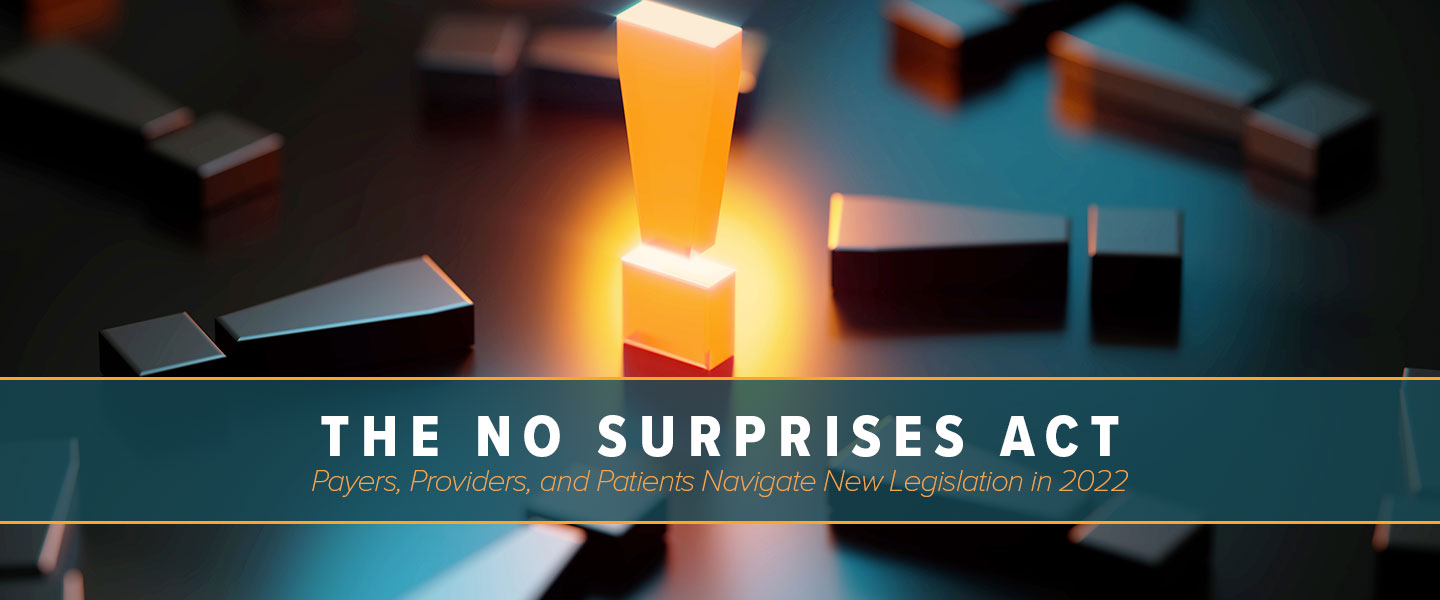The No Surprises Act (NSA) has been in effect for the last few months, with most of its provisions implemented in January 2022. With its aim of preventing surprise medical bills, aspects of the NSA also include guidance surrounding fair reimbursement negotiations, good faith estimates, advanced explanation of benefits, and provider directory updates. We caught up with a few of our NantHealth experts to help explain what some of this new legislation means for payers, providers, and patients.
The NSA offers patients protection from surprise medical bills resulting from gaps in coverage for emergency and certain out-of-network services. In emergencies, patients can unavoidably end up at an out-of-network facility or be treated by out-of-network physicians. Before the NSA, providers were able to surprise bill a patient, where the patient would sign a balance payment agreement, putting the patient on the hook for the remainder of the bill, sometimes at a high price. The NSA helps prevent these specific types of bills, with an in-network based limit. Patients will still be able to select out-of-network providers, but they will be asked to provide consent for the provider to bill at out-of-network rates.
Another provision of the NSA includes offering providers and payers guidance around fair reimbursement negotiations and arbitration for out-of-network services. This is crucial because emergency service providers are required to treat any patient, regardless of their ability to pay, and need price support. The patient arbitration process through the No Surprise Act protects patients in cases where the bill is substantially more than the expected estimate charges.
The NSA also requires good faith estimates and advanced explanation of benefits generated for uninsured, or self-pay, patients. Providers deliver good faith estimates to the payer, and the payer returns an advanced explanation of benefits for both the provider and the patient. This helps self-pay patients have transparency into the cost of treatment and allows patients to compare different providers’ pricing estimates to choose the best option that fits for them.
Additionally, the law enables directory updates that facilitate patients being able to choose providers with updated, correct information and related tools. Providers must update their provider information with the health plan every 90 days, and payers must update their database within two business days of receiving a provider update. For patients, these recurring updates are important to facilitate a more seamless network search experience, giving them insight into the status of providers that may no longer be practicing medicine or have moved out of network. NaviNet Open Document Exchange supports the NSA criteria by easily allowing providers to inform payers about changes to demographic information and the ability to submit advanced EOB requests.
The financial intricacies of the healthcare industry have been notorious for impeding a better patient experience. With patients left on the outskirts of the conversation, administrative billing and its overall transparency in this space has been a longstanding issue and continues to be one of the largest problems in healthcare. The categories mentioned above are only a few of the key provisions of the No Surprises Act, but the legislation outlined allows for patients to be better informed and for providers and payers to work together in a more cohesive way, improving interactions and collaboration within the healthcare ecosystem. More tools are needed to help patients navigate the complexity of billing and administrative processes, but the No Surprises Act is an important step in the right direction for healthcare services in the United States.








